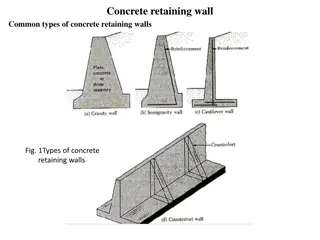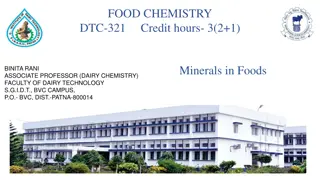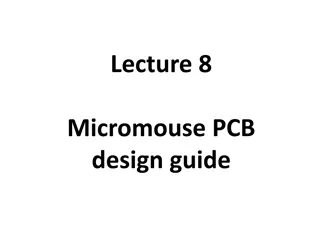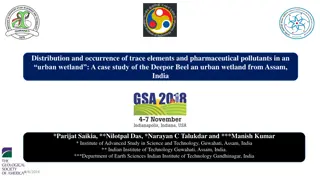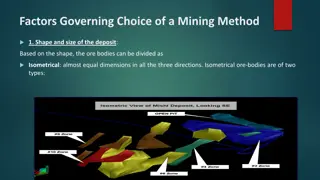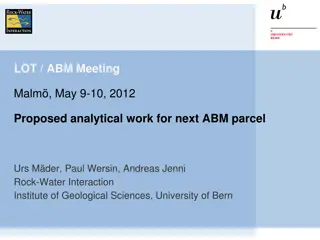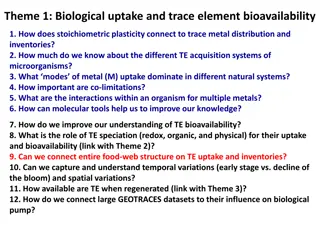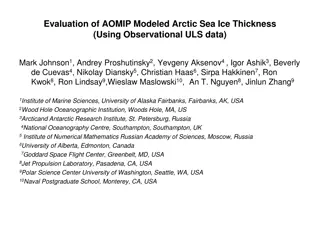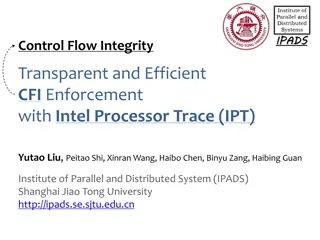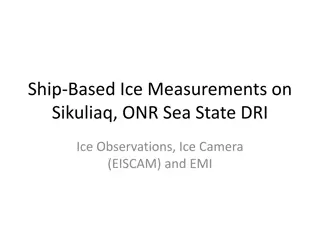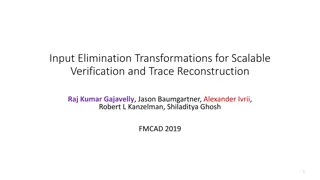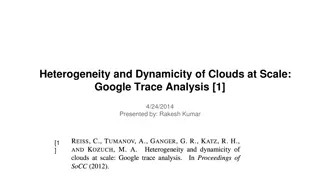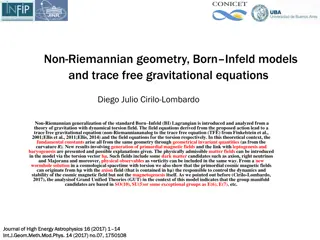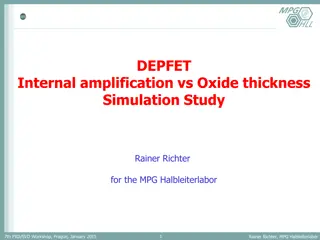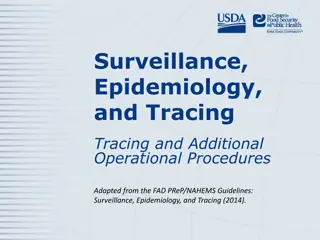BOPP Wrap Around Labels Manufacturer in India
Wrap around labels are roll fed labels available in oriented poly proplyene in pearlised white opaque or natural transparent. We offer oriented polypropylene roll fed labels for 360 degree, full body wrap around labeling of carbonated soft drinks, pet water bottles, beverage, coffee and food product
1 views • 6 slides
BOPP Wrap Around Labels Manufacturer in India
Wrap around labels are roll fed labels available in oriented poly proplyene in pearlised white opaque or natural transparent. We offer oriented polypropylene roll fed labels for 360 degree, full body wrap around labeling of carbonated soft drinks, pet water bottles, beverage, coffee and food product
0 views • 6 slides
Concrete retaining wall
Cantilever retaining walls are commonly used in various scenarios, such as for low walls, limited backfill zones, and urban areas. This type of retaining wall design requires careful consideration of key elements like stem and base thickness, wall pressure for stability, and moment arms for structur
3 views • 10 slides
ENAMEL
Enamel, the hardest calcified tissue in the human body, forms a protective covering over the teeth, adapting them for mastication. Its thickness varies across different surfaces of the teeth, with maximum thickness found on cusps. The structure of enamel makes it brittle, especially when it loses su
2 views • 46 slides
From Packaging to Prototyping: How HDPE Sheets Are Transforming Industries
In the realm of industrial materials, High-Density HDPE sheet thickness sheets have emerged as a versatile and reliable solution with applications spanning from packaging to prototyping. Their unique combination of properties makes them indispensable in various industries, revolutionizing processes
8 views • 4 slides
MANUFACTURERS OF SHRINK & & BOPP WRAP AROUND LABELS
Wrap around labels are roll fed labels available in oriented poly proplyene in pearlised white opaque or natural transparent. We offer oriented polypropylene roll fed labels for 360 degree, full body wrap around labeling of carbonated soft drinks, pet water bottles, beverage, coffee and food product
0 views • 3 slides
Understanding Malignant Melanoma: Types, Signs, and Prognosis
Malignant melanoma is a serious skin cancer with various types, including superficial spreading, nodular, acral lentiginous, lentigo maligna, and amelanotic. Recognizing early signs such as ABCDEF (Asymmetry, Borders, Colour, Diameter, Evolving, Funny-looking) is crucial for prompt diagnosis. Macros
2 views • 25 slides
Understanding the Importance of Minerals in Foods
Minerals play vital roles in food chemistry and human nutrition. There are main elements, trace elements, and ultra-trace elements present in foods that contribute to various physiological functions. Sodium, potassium, magnesium, and calcium are essential minerals with specific roles impacting human
6 views • 27 slides
Understanding Atmospheric Thickness and Its Applications
Atmospheric thickness refers to the difference in geopotential height between two pressure surfaces, which is dependent on the mean virtual temperature of the layer in between. This concept plays a key role in determining temperature gradients, identifying fronts, and aiding in weather forecasting,
0 views • 11 slides
Micromouse PCB Design Guide
This guide provides step-by-step instructions for designing a PCB for a micromouse. It covers components placement, sensor positioning, trace thickness, and trace style to optimize the performance of the micromouse. Proper positioning of components and sensors is crucial, along with considerations f
0 views • 22 slides
Welding Current Selection and Electrode Factors in Shielded Metal Arc Welding
When selecting the welding current for Shielded Metal Arc Welding (SMAW), considerations such as plate thickness, cable length, arc initiation ease, arc blow, and welding position play crucial roles. Direct Current (DC) is preferred for thin sheets and odd position welding, while Alternating Current
0 views • 10 slides
Exploring Explanations of Forgetting in Memory
This content delves into various explanations of forgetting in memory, such as trace decay, displacement, interference, retrieval theory, and motivated forgetting. It discusses why people forget and evaluates these theories. Additionally, it explores the Multi Store Model of Memory and concepts like
0 views • 74 slides
Distribution and Occurrence of Trace Elements in Urban Wetland: A Case Study of Deepor Beel, Assam, India
This study focuses on the distribution and occurrence of trace elements and pharmaceutical pollutants in the urban wetland of Deepor Beel in Assam, India. The research investigates the presence of emerging contaminants like pharmaceuticals and personal care products, providing insights into the poll
0 views • 10 slides
Factors Influencing Mining Method Selection
Factors affecting the selection of a mining method include the shape and size of the deposit, the deposit's contact with country rock, thickness of the ore body, and the dip of the deposit. The shape of the deposit, contact with country rock, and thickness of the ore body impact the feasibility and
0 views • 14 slides
Basic Principles of Medical Geology and Trace Elements Overview
This session delves into the fundamental principles of medical geology and its impact on human health. It explores how exposure to certain elements in the geologic environment can affect well-being, emphasizing pathways of trace elements into the body and their consequences. Dr. Patrick Asamoah Saky
0 views • 26 slides
Selection of Layer Thickness in Highway Flexible Pavement Design
Selection of layer thickness for highway flexible pavement design involves determining an initial pavement structure's design structural number and then choosing appropriate thicknesses to meet or exceed the required structural number. Cost-effectiveness, construction constraints, and maintenance co
0 views • 11 slides
Overview of Minerals and Trace Elements in Human Nutrition
Minerals and trace elements play essential roles in the human body, categorized into groups based on their functions and requirements. Nutritional minerals like calcium, phosphorus, and magnesium are needed in larger amounts, while trace elements such as zinc and iron are required in smaller quantit
0 views • 50 slides
Impact of Board Thickness Deviations on Wire Displacement
In this study by Lee Greenler at UW Physical Sciences Lab, the effect of side and foot board thickness deviations on wire position was analyzed. The displacement of the wire was found to vary based on the cosine factor, with potential displacements up to ~0.5mm near the pin. Different cases were con
0 views • 5 slides
Analytical Work for Rock-Water Interaction at LOT/ABM Meeting
Proposed analytical work for the next ABM parcel focuses on trace minerals, soluble salts, and dissolved organic acids in the context of rock-water interactions. The investigation includes qualitative measurements, new separation techniques, and analysis of iron-bentonite interactions. The aim is to
0 views • 9 slides
Importance of Outdoor Ethics and Leave No Trace Principles
Outdoor ethics play a crucial role in preserving natural areas for future generations. The increase in visitors to wilderness areas highlights the need for responsible behavior. Integrating Leave No Trace principles into programs like BSA emphasizes the value of conservation and respect for the outd
0 views • 14 slides
Understanding Biological Uptake of Trace Elements in Natural Systems
Explore the connection between stoichiometric plasticity and trace metal distribution, investigate microbial acquisition systems, analyze modes of metal uptake, and address co-limitations and interactions within organisms. Utilize molecular tools to enhance knowledge on trace element bioavailability
0 views • 5 slides
Evaluation of Arctic Sea Ice Thickness Using AOMIP Model and ULS Data
This study evaluates Arctic sea ice thickness utilizing AOMIP modeled data and observational ULS data. The comparison includes ice thickness from models, linear regressions, histogram differences, correlations, and model issues. Location comparisons and model versus observation thickness variances a
0 views • 42 slides
Transparent and Efficient CFI Enforcement with Intel Processor Trace
This research discusses Control Flow Integrity (CFI) enforcement to combat control flow hijacking attacks. It explores methods for runtime CFI enforcement, including instrumented checking and transparent monitoring. The study delves into trace mechanisms, buffer management strategies, and when to tr
0 views • 32 slides
Comprehensive Ship-Based Ice Measurements and Observations on Sikuliaq for Sea State DRI
This collection of images showcases various ship-based ice measurements and observations conducted on the research vessel Sikuliaq for Sea State DRI. The images include aspects such as sea ice observations, snow and ice thickness measurements, evaluation of orthorectification, and new snow and ice i
0 views • 8 slides
Trace-Driven Cache Simulation in Advanced Computer Architecture
Trace-driven simulation is a key method for assessing memory hierarchy performance, particularly focusing on hits and misses. Dinero IV is a cache simulator used for memory reference traces without timing simulation capabilities. The tool aids in evaluating cache hit and miss results but does not ha
0 views • 13 slides
Input Elimination Transformations for Scalable Verification and Trace Reconstruction
This work introduces new input elimination techniques for scalable model checking in industrial applications, focusing on trace reconstruction. The transformations aim to make the netlist more tractable for solving, involving various algorithms such as retiming, phase abstraction, and bitwidth reduc
0 views • 27 slides
Enhancing Precision and Accuracy in Trace Element Analysis Using EPMA Techniques
This research focuses on improving precision and accuracy for trace elements through advanced methods like MAN (mean atomic number) and MPB (multi-point background). By optimizing background measurements and calibration techniques, researchers aim to enhance the sensitivity and reliability of trace
0 views • 16 slides
Succinct Representation of Concurrent Trace Sets in Program Synthesis
This work focuses on representing concurrent trace sets efficiently in program synthesis. It addresses the problem setting of concurrent programs with specifications and provides solutions for avoiding assertion violations, including adding locks, barriers, and wait-notifies. The synthesis loop ensu
0 views • 25 slides
Rapid Analysis of Soil Macronutrients Using Energy Dispersive X-ray Fluorescence
Determination of trace elements and macronutrients in agricultural soils is crucial for crop productivity. This study highlights the advantages, challenges, and objectives of using energy dispersive X-ray fluorescence for rapid and precise analysis. The method requires minimal sample preparation, co
0 views • 10 slides
Guidelines for Implementing Customer Logging in Businesses for Coronavirus Safety in England
Specific guidance for businesses in England on implementing customer logging to prevent the spread of coronavirus, including the importance of recording staff, customers, and visitors, and collaborating with Test and Trace for effective outbreak containment and prevention. The document includes info
0 views • 15 slides
Understanding Cloud Heterogeneity and Dynamicity: A Google Trace Analysis
Exploring the heterogeneity and dynamic nature of clouds at scale using Google Trace Analysis, focusing on machine allocation, workload types, job durations, task shapes, and machine churn. The study offers insights into resource allocation in evolving multi-tenant clusters and highlights the challe
0 views • 16 slides
Bringing Leave No Trace to Scouting: Expectations and Training Sessions
Encouraging Leave No Trace practices in Scouting is essential. This guide covers expectations for instructors, training sessions, BSA trainings, promotion strategies, and leadership positions related to Leave No Trace. From promoting the message to in-depth training opportunities, the focus is on in
0 views • 12 slides
Understanding Trace Tables for Algorithm Testing
Trace tables are a valuable technique used to test algorithms step by step and identify logic errors. They involve using truth tables to track variable values or conditions. This content provides insights into trace tables, correcting errors in pseudocode, using examples for variable tracking, and c
0 views • 9 slides
Redox Conditions and pH Control in a Mountain Watershed: Study in Red Canyon, Wyoming, USA
Exploring redox conditions and trace element concentrations in a semi-arid mountain watershed, this study in Red Canyon, Wyoming, delves into the impact of oxic surface water and anoxic groundwater on trace element cycling. The investigation aims to enhance understanding of seasonal variabilities, f
0 views • 11 slides
Non-Riemannian Geometry and Born-Infeld Models in Gravitational Theory
In this paper by Diego Julio Cirilo-Lombardo, a non-Riemannian generalization of the Born-Infeld Lagrangian is introduced in the context of gravitation with a dynamical torsion field. The resulting field equations lead to a trace-free gravitational equation and provide insights into primordial magne
0 views • 34 slides
Aquantis Ocean Current Turbine Renewable Energy Analysis
An update on a trade study regarding blade count for Aquantis ocean current turbine, discussing ideal hydrodynamic and structural models, calculation approaches, and preliminary results. The study explores the effect of thickness-to-chord ratio on rotor section weight and spar thickness for two- and
0 views • 10 slides
DEPFET Internal Amplification vs. Oxide Thickness Simulation Study by Rainer Richter
The study explores the behavior of DEPFET internal amplification in comparison to oxide thickness through simulations conducted by Rainer Richter at the MPG Halbleiterlabor workshop. It delves into the differences in behavior between DEPFET and classical MOS transistors, shedding light on the reason
0 views • 11 slides
Tracing in Animal Disease Control: Guidelines and Procedures
This presentation delves into the importance of tracing in animal disease control, covering trace-back and trace-forward methods, sources of information, collaboration services, and the role of livestock owners. It highlights the guidelines and operational procedures adapted from FAD PReP/NAHEMS, fo
0 views • 27 slides
Effective Compaction Techniques for Civil Engineering Projects
Understanding the variables involved in soil compaction operations is crucial for developing a successful compaction plan. Factors such as soil moisture content, lift thickness, number of passes, ground contact pressure, compactor weight, and speed play key roles in achieving optimal compaction resu
0 views • 42 slides
Welding Heat Flow and Cooling Rate Calculations
Understanding welding heat flow and cooling rate calculations is essential for determining the critical cooling rate in welding processes. Factors such as plate thickness, number of passes, and relative plate thickness play a crucial role in selecting the appropriate equations for calculating coolin
0 views • 10 slides


